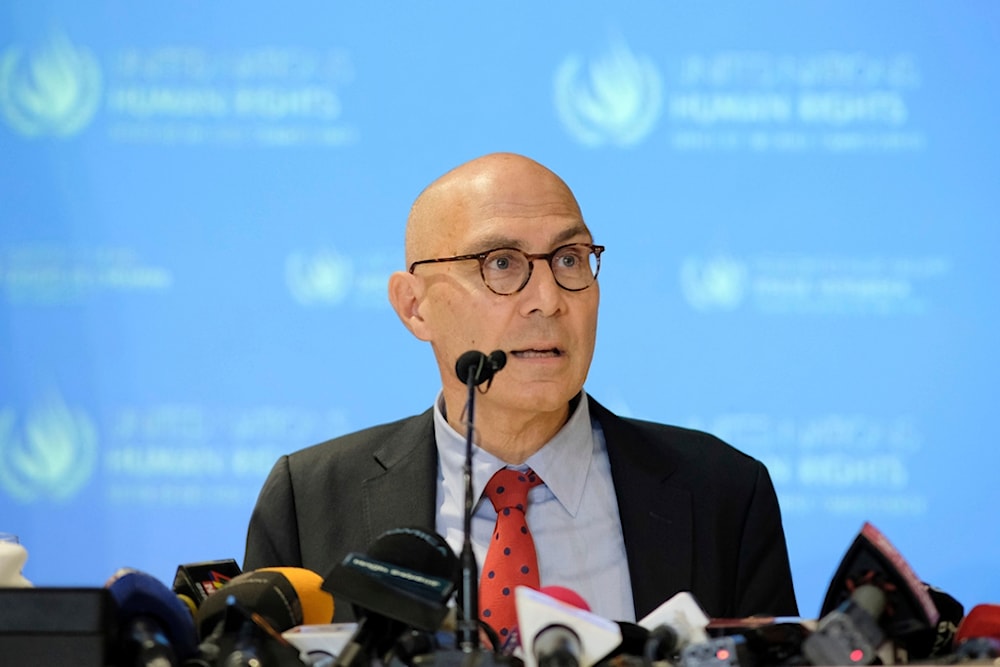UN Rights Chief condemns Tunisia's mass sentencing
Over the past two years, Kais Saied has faced mounting accusations of eroding democratic institutions, expanding executive control, and using the judiciary to silence critics.
-

UN High Commissioner for Human Rights Volker Turk addresses media personnel in Dhaka, Bangladesh, on Wednesday, October 30, 2024. (AP Photo/Mahmud Hossain Opu)
The United Nations' top human rights official has strongly criticized the recent conviction of nearly 40 Tunisian opposition figures, raising alarm over the integrity of the legal proceedings and suggesting potential political interference.
Volker Türk, the UN High Commissioner for Human Rights, issued a statement on Thursday condemning the handling of the trials. "The process was marred by violations of fair trial and due process rights, raising serious concerns about political motivations," he said.
The remarks follow a mass sentencing on April 19 in which the Tunisian judiciary handed down prison terms ranging from 13 to 66 years to political opponents, including high-profile figures such as businessman Kamel Ltaif and politician Khyam Turki. The sentences, delivered in absentia for many of the defendants, were based on charges related to conspiring against state security and alleged links to terrorist activity. Several of those convicted had been detained for over two years, while others fled the country and were tried without being present.
International rights groups have slammed the verdicts. Amnesty International described the proceedings as a "sham trial," citing the exclusion of defense lawyers, prolonged pre-trial detentions, and the denial of defendants' basic legal rights. Human Rights Watch similarly raised alarm over the lack of transparency, while the French government also voiced concern, noting that civil society, media, and diplomats were barred from observing the trial.
The case has intensified scrutiny of Tunisia's political trajectory under President Kais Saied, who dissolved parliament in 2021 and has since ruled largely by decree. Over the past two years, Saied has faced mounting accusations of eroding democratic institutions, expanding executive control, and using the judiciary to silence critics.
Public anger has also spilled into the streets. On April 18, as the mass trial resumed in a Tunis court, protests broke out outside the courthouse, with demonstrators, including opposition figures and journalists, denouncing the proceedings and demanding the release of detainees.
On April 9, hundreds of Tunisians held major demonstrations in the capital, accusing President Saied of authoritarian rule and calling for the release of imprisoned political leaders. The protests reportedly included groups such as the Free Constitutional Party and the Salvation Front.
Read more: Protests erupt in Tunisia over arrest of prominent lawyer Ahmed Souab

 3 Min Read
3 Min Read










